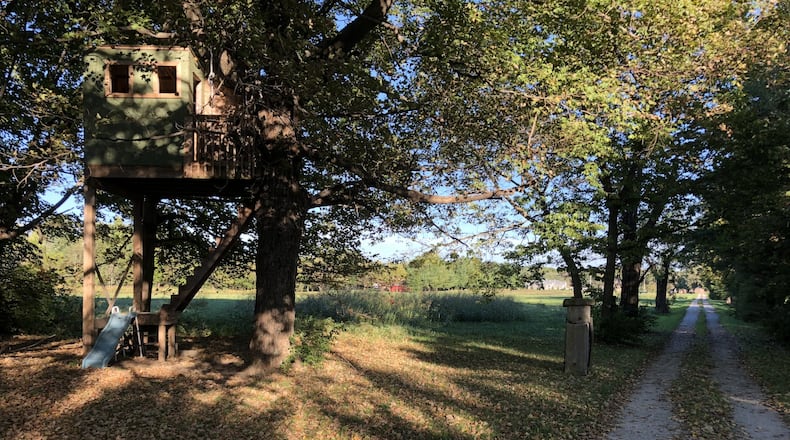The man behind the referendum pointed to other examples of what he called “a grassroots movement” to stem the rate and density of residential development in the region.
MORE: Residents rally against Washington Twp. development
“It’s unreal the new subdivisions that are being built,” Thomas Duerr said. “It’s like the Field of Dreams.”
On Oct. 1, members of the Waynesville Council voted 6-1 to pass a resolution declaring the village would not annex just under 41 acres owned by Don and Sherry Federle for a residential subdivision.
Waynesville Mayor Dave Stubbs said the majority of council decided to resolve against annexation of “not just of the Federle property but generally of any property” to avoid seeing the village grow so large it became a city.
The resolution was passed after Councilwoman Kimberley Kaan called for it to be amended to say “property tax and other current revenue sources are not enough to support residential land annexations and risk pushing the Village closer to city status with no funding mechanism available for these additional responsibilities.”
MORE: Warren County moves ahead with 3,700-area sewer district
About 2,900 currently live in Waynesville and a proposed 800-home subdivision, along with Federle’s project, could push the city over the 5,000-resident limit that determines whether a municipality is a city.
“I’d rather not get there for a long time,” Stubbs said, although Waynesville does collect a 1-percent tax on wage-earning residents. “Tax-revenue-wise, we really don’t benefit.”
The Federles attended the meeting and asked for “at least a phone call” notifying them of village actions effecting them, according to meeting minutes.
“I told them I thought they were getting the cart before the horse,” Federle said earlier this month, while sitting on the back porch of his family home, part of which dates back to the 1800s and would be part of the proposed development.
The land is the last piece owned and developed by the Federles or a company set up by them and relatives, according to Federle. Rosewood Meadows and Creekwood Acres are both in Waynesville as a result of annexation.
On May 7, voters in Wayne Twp., including the incorporated village of Waynesville, are to decide whether to undo the zoning of the 40.7 acres on Lytle Road.
MORE: Warren County grants permission for sewers for development outside Waynesville
Petitioners missed the deadline to get on November ballots. It could be the only thing on May ballots in Warren County.
“So far they are the only ones on the ballot,” Brian Sleeth, director of the Warren County Board of Elections said last week.
There are no offices up for election. Deadline to get on a May 7 ballot is Feb. 6.
Federle’s proposed development sits between Creekwood Acres and Rosewood Meadows.
Federle said he and his wife bought the 40.7 acres in 1999 and moved into the historic farmhouse. Earlier this year, he said, he applied for transitional zoning allowed under a new township zoning code.
“We wanted to stay in the township,” he said.
After a spirited public meeting in July, Wayne Twp. trustees voted 2-1 to allow Federle to divide the land into 39 lots.
Federle acknowledged he was among the minority in favor of the zoning.
“Everybody is always against development,” Federle said. “You’re always the bad guy.”
But he said the transitional zone designed to gradually adjust development density was the best one for his land. He said Waynesville stood to gain from his development.
Petitions forcing the Wayne Twp. special election were collected by a group headed by Duerr, a township resident.
Duerr was also among those speaking against the Federle annexation at the Wayne Twp. meeting.
“The only people I heard speak in favor was the developer and his engineer,” he said. “There was no one that said this was going to be a good thing for the township.”
Duerr wants the township to require at least 2 acres for homes in rural residential developments.
“My biggest concern is this setting a precedent,” he added.
MORE: Oberer meets with residents to dpsiel “misinformation” about housing plan
Duerr said he copied from language used to call the election in a successful referendum in Washington Twp. in Montgomery County and could be drawn from if residents upset with a residential development plan in Sugarcreek Twp., Greene County, seek a referendum.
“I think there’s a grassroots movement,” Duerr said. “They need to listen to the existing taxpayers and voters, not just the developers.”
About the Author

